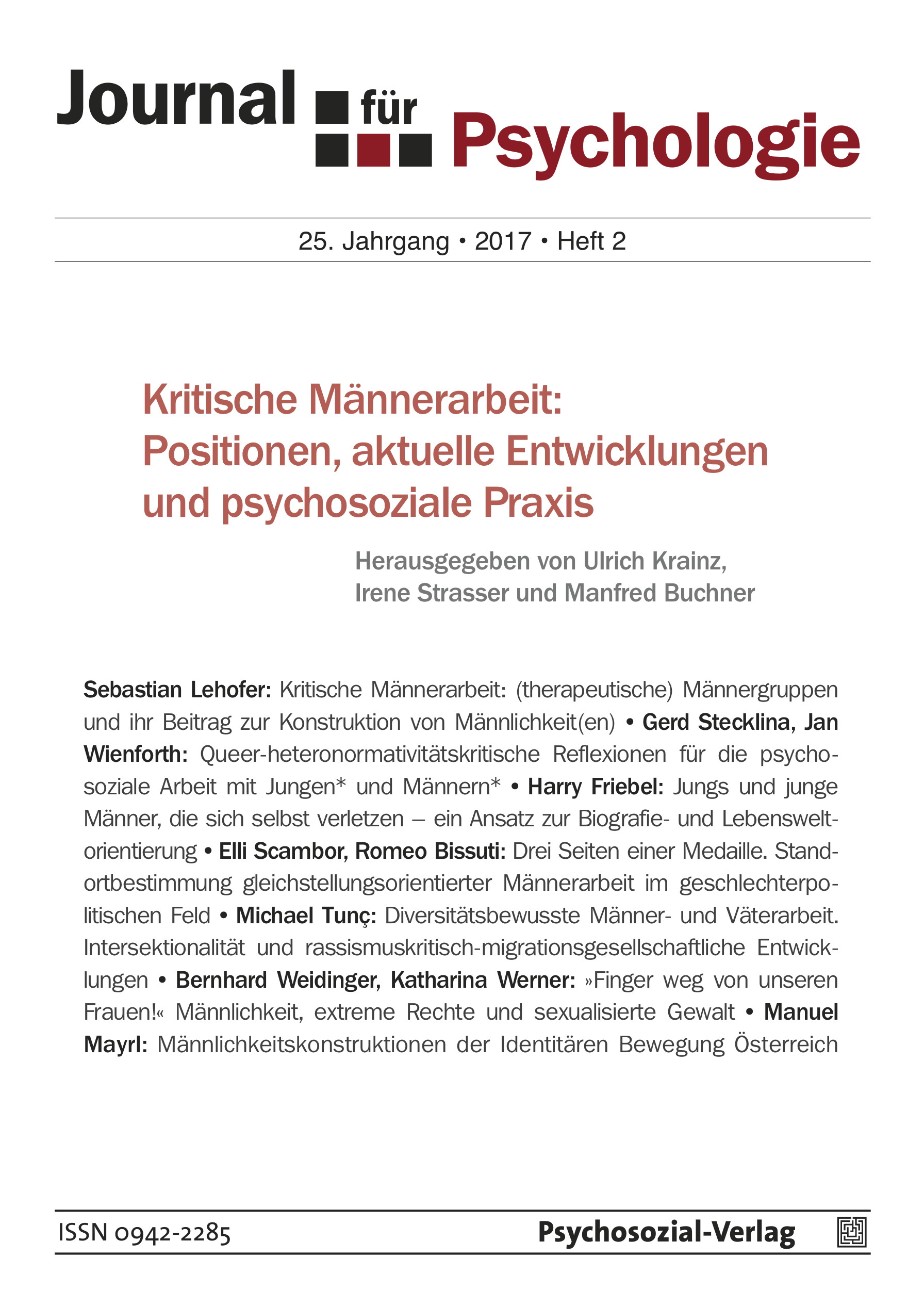Critical Diversity Perspective in Social Work with Men and Fathers. Intersectional and Critical Race Developments
Keywords:
Studies on Fathering, Social Work with Men/Fathers, Migration, Ethnicity, DiversityAbstract
Transferring experiences from the professional work with boys, it is discussed what can be the "critical" in working with men/fathers in a migration society. Some basic questions of professional social work with migrant fathers are discussed. Following an intersectional approach, current findings and developments in Fathers Studies and Social work with fathers are presented, reflecting on how differences concerning gender, ethnicity and class interact. Current mainstream discourses are also discussed critically: fathers with migration background and of Color are missing in German discourses dealing with transformations of caring masculinities and are often represented in a negative way. The aim is to take critical and emancipatory developments on masculinity into account, using the concept of progressive masculinity (Mutua). In doing so, tensions between hegemonic and progressive orientations of masculinity/fathering can be analysed, not just focussing on different types of fathers. Using the example of the Working Group for Intercultural Work with Fathers in North-Rhine Westphalia and the evaluation of its work success factors in the work with migrant fathers or PoCs are presented.Downloads
Published
2017-11-10
How to Cite
Tunç, Michael. 2017. “Critical Diversity Perspective in Social Work With Men and Fathers. Intersectional and Critical Race Developments”. Journal für Psychologie 25 (2). https://journal-fuer-psychologie.de/article/view/444.
Issue
Section
Schwerpunkt
License
This license allows private use and unmodified distribution, but prohibits editing and commercial use (further information can be found at: https://creativecommons.org/licenses/by-nc-nd/4.0/).
The terms of the Creative Commons licence only apply to the original material. The reuse of material from other sources (marked with a reference) such as charts, illustrations, photos and text extracts may require further permission for use from the respective copyrights holder.



